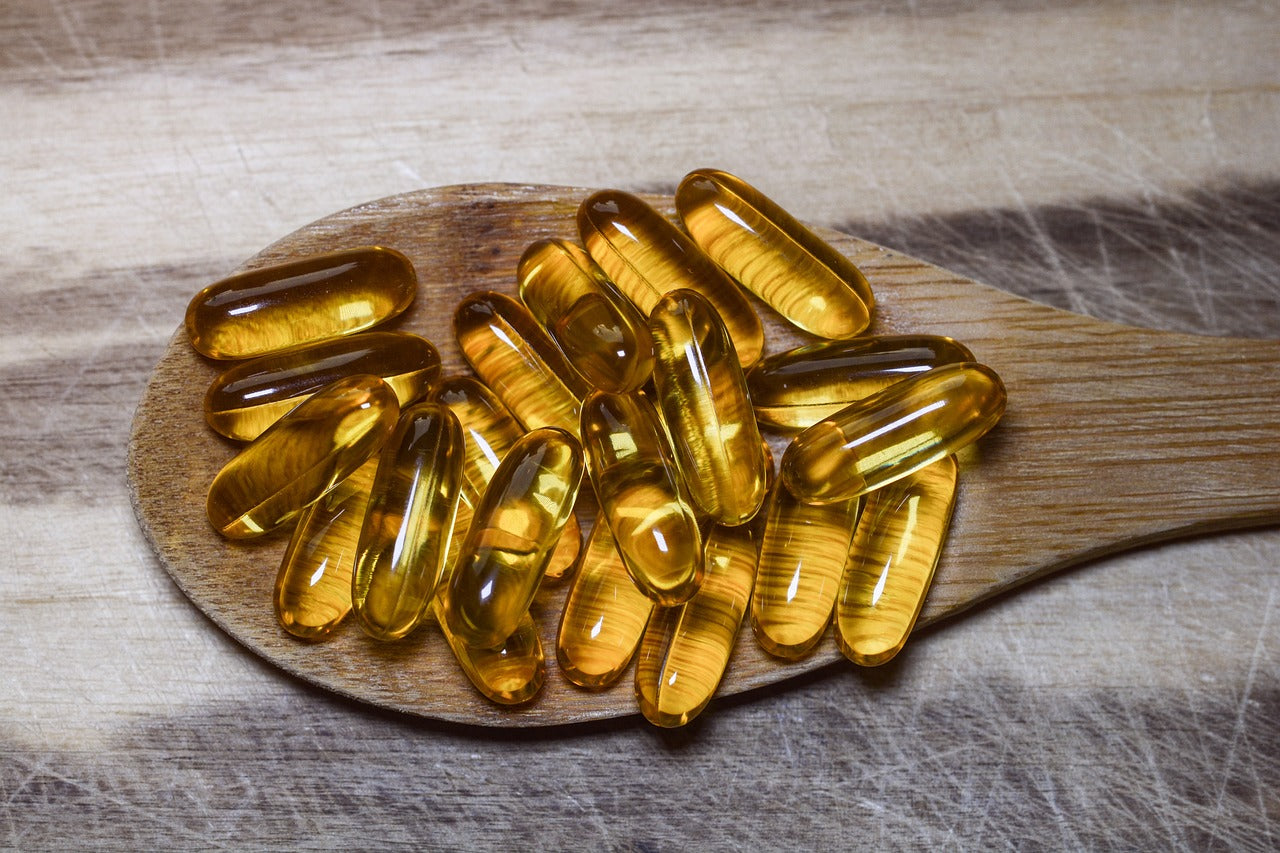
Whatever You Do, Don’t Rely on This Kind of Omega-3
First, Not All Omega 3s Are Equal
So, I love fat.
Not all fats, just the healthy kinds of fat.
So that means I love coconut fat, olive oil, fat from grass-fed butter and ghee, among others.
One of my favorite kinds of fat are Omega-3s.
One of the reasons I love them so much is because Omega-3s are shown to be anti-inflammatory, good for the brain and the heart, and helpful at extending life. That, and they’re usually taken from some of the best tasting food on Earth.
Any idea what food that might be?
Wild caught fish my friend…wild caught fish.
But what I’ve noticed is, there are a lot of products out there that are masquerading as great sources of Omega-3s when they really aren’t.
Check this out. A lot of the time, the foods that say they’re great for Omega-3s are plant products.
Now, don’t get me wrong. I’m all for the avid and responsible consumption of many types of plant food. Remember, I eat meatless Tuesdays, so to say I’m hating on veggies is false.
How dare you accuse me of hating on my leafy food favorites!!
I just want you to know something about just about every kind of vegetarian based Omega-3s.
They’re not all equal.
In fact, they can even be bad for you.
However, there’s some good news if you’re vegan or vegetarian, and I’ll get to that in just a moment.
But, first read this.
Here’s How Omega-3s Can Boost You Health.
The American Heart Association wrote a study called, “Fish Consumption, Fish Oil, Omega-3 Fatty Acids, and Cardiovascular Disease.
It said:
Omega-3 fatty acids have been shown in epidemiological and clinical trials to reduce the incidence of CVD (cardiovascular disease) Evidence from prospective secondary prevention studies suggests that EPA+DHA supplementation ranging from 0.5 to 1.8g/d (either as fatty fish or supplements) significantly reduced subsequent cardiac and all-cause mortality.
The statement went on to to note that Omega-3s can also help:
- decrease triglycerides
- lower blood pressure
- improve cholesterol by increasing HDL and decreasing LDL,
- improve endothelial function
- reduce blood clotting
- decrease risk for poor heart health
- reduce cardiac arrhythmias
- reduce inflammation that can damage artery lining that can lead to atherosclerosis.
Now what you’ll notice is this is talking about fish, and fish oil.
The interesting thing about fish, and the prominence of Omega-3s in fish comes down to their diet.
You see fish feed on Omega 3 rich foods.
For any animal (that includes you and fish) to have a healthy amount of Omega-3 means it’s got to get it from the right sources.
And for humans, we need to either be eating animals who have already done the hard work of converting basic forms of Omega-3 into usable forms, or we need to eat plants that have usable forms already.
What does all this mean? What does this have to do with some veggies not offering good Omega-3 support?
Basically, there are some plants that are great sources of Omega-3, and then there are some that aren’t…even when they claim they are.
And my goal is to help clear up the confusion.
Why Omega-3 Rich Plants Aren’t Necessarily Great Sources of Omega-3
Here’s how this works:
Many fats we need for “health as it ought to be” can be synthesized by the body. Omega-3 fats can’t be synthesized by the body.
That means you need to get them from food.
There are 3 types of Omega-3s. They are alpha-linolenic acid (ALA), eicosapentaenoic acid (EPA), and docosahexaenoic acid (DHA).
Most plant sources, the kind you see in health food stores, are typically made up of ALA.
And ALA is a shorter-chained fatty acid that isn’t what you need for ideal health.
I’ll be blunt. Your body doesn’t benefit from ALA nearly the same way as it does from EPA and DHA. Both EPA and DHA are long-chain fatty acids. They’re the ones that groups like the AHA and JAMA have noted have clear health benefits.
There’s a little caveat to this.
Yes, your body can convert ALA into both EPA and DHA. But, the conversion process is inefficient at best since ALA is competing against omega-6 to make this conversion occur. And startlingly, it’s even been shown that the conversion process can lower DHA levels.
I’m sure you’d agree that’s not a good thing.
So what does this mean for you, the consumer?
Well, that all the plant sources you see advertised as being rich sources of Omega-3 (flax, hemp, chia, pumpkin seeds, walnuts, soy) really aren’t as good as you might believe.
It’s like they’re pretending to be Varsity Omega-3s when they’re really JV at best.
I’m not going to say they’re bad (well, soy is), but if you’re looking to them for Omega-3, you’re going to be disappointed.
Now, let’s go back to the study about fish oil and its health benefits.
What is it about fish that’s so special?
Well, fish oil is high in DHA and EPA. Those longer-chain fatty acids are the same acids that come with all the health benefits.
And, what fish have done is they’ve taken the Omega-3s from their diet and then stored them in their fatty tissue which is what makes it so good for you.
Don’t Like Fish? Here Are Other Great Sources For Omega-3s
Ok, so it’s been established that fish is a great source of Omega-3s.
But what if you don’t like fish?
Well, one option is to supplement with fish oil supplements.
These capsules take fish fat and then isolate the EPA and DHA and allow you to get the benefits of eating fish without having to eat it.
The downside to this is many of these fish oil supplements can leave you with “fishy burps.”
Nasty.
Some companies have formulated their pills with special enteric coatings that help eliminate the fish burps, so those are a consideration.
But, if you want to just steer clear of anything fishy altogether you have several other options.
One of these is eating pasture-raised meats.
Remember, while eating plant sources isn’t ideal for DHA and EPA, eating pasture-raised animals can help you get the EPA and DHA you need.
Grass-fed beef typically contains anywhere from 3.5 grams – 1 gram of Omega 3 per 3.5 oz. serving. A lot of that depends on the diet for the animal.
It’s not going to be as high as fish, but it’s still close to the D.R.V.
The same goes with pasture-raised eggs along with bison, wild game, etc. They’re going to have more Omega-3 than their conventionally raised counterparts, but not as much as fish.
By now you might have noticed a trend.
Fish is the best place to get Omega-3.
Why is that exactly?
Well, here’s where anyone and everyone has a reason to rejoice.
The reason fish is so high in Omega-3 is because of its vegetarian diet.
These 2 Vegetables Are High in EPA and DHA
Fish subsist off of a diet rich in algae and phytoplankton.
Which are great sources of both DHA and EPA
Remember the food chain?
Well, it has significant implications in both DHA and EPA levels. Take this for instance. We know that salmon is one of the best sources of Omega-3 because of its diet.
Salmon are predators.
But, they eat smaller fish that feed exclusively off of phytoplankton and algae.
And what scientists are beginning to discover is both of these are quite high in both DHA and EPA.
So, that means if you want vegetarian sources of EPA and DHA, you need to eat algae and phytoplankton.
The only problem is neither of these “vegetables” are readily available to us land-dwellers.
Well, there’s good news here. Recent research has provided the market with supplemental forms of EPA and DHA rich Omega-3s that come from these two sea plants.
So, if you’re vegans or vegetarians, you can turn that frown upside down.
They’re available in both health food stores and online.
Once you understand that conclusive evidence has indicated Omega-3s from most vegetarian sources is lacking, you can see the benefit of eating fish (and other meat).
And if you’re really hungry for Omega-3s, if you eat what the fish eat, you’re also taking a step in the right direction.
At the end of the day, not all Omega-3s are equal.
But if you understand how good algae and phytoplankton are, you can go vegan (or vegetarian) without a worry in the world.
Sound good?
Talk soon,
Dr. Wiggy
www.HealthAsItOughtToBe.com



